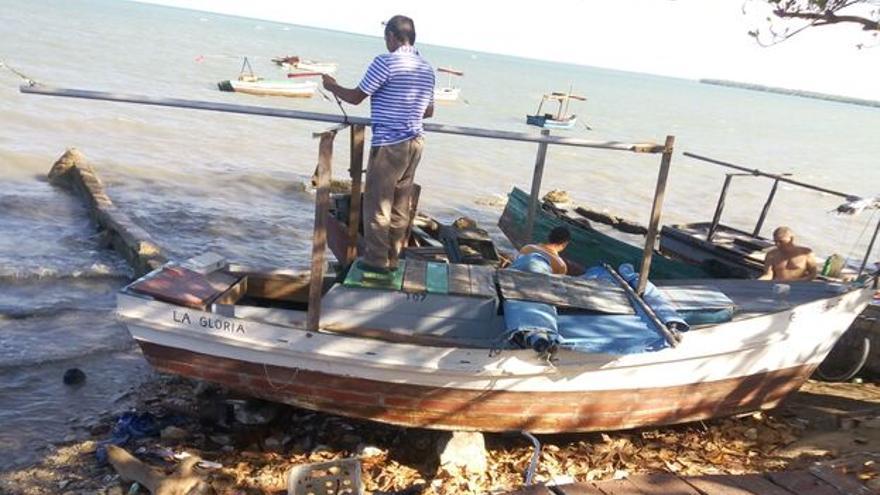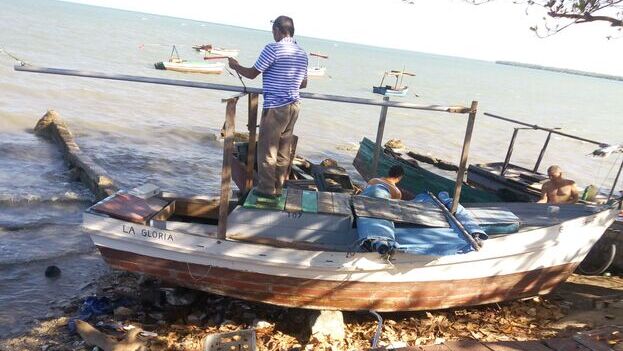
14ymedio, Juan Matos, Manzanillo (Cuba), 28 January 2024 — As he talks, Chucho likes to “pass his hand” over the boat he uses to go fishing. A crust of salt disfigures its sides, the hull is patched with pieces of aluminum and it is not uncommon for the engine to stall while at sea. It is a hard life and it pays little, but he and the other fishermen in Manzanillo, a town in Granma province, have a motto: “We cannot stay on land.”
At sea there is food, even though it is hard get. On land – besides the problems of living in one of the poorest towns in Cuba — they wait for the inspectors, the fishing industry bureaucrats and the local townspeople, who come to the beach on bicycle, hoping to buy fish directly from the people who catch them.
Buying and selling on the informal market, and making deals with private business owners, while avoiding raids by inspectors are the only ways to survive. “When you do business with the state, they always win, explains Chucho. “The Fishing Combine pays us less than 2,000 pesos for every ton of fish we catch. And one ton is 2,200 pounds,” he calculates. “It’s a total rip-off. The state pays less than a peso for each fish.”
“We’re forced to sell to private individuals, who pay us 200 pesos a pound. Then they resell it.” There are those who manage to make a good deal with a small business owner who buys the entire catch from them. “It’s a good way to get the merchandise out quickly,” admits Chucho, but delivering it requires speed and agility. And sometimes, he complains, the boats’ puny engines do not cooperate.
“Your paperwork has to be up to date at all times because, on the coast, the inspectors issue harsh fines over the ’engine issue,’ but we are very careful.”


